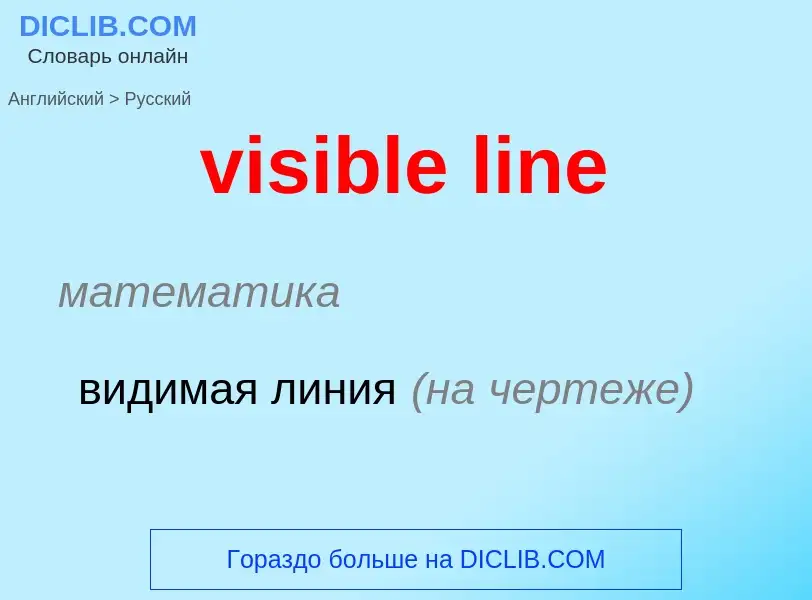Traducción y análisis de palabras por inteligencia artificial ChatGPT
En esta página puede obtener un análisis detallado de una palabra o frase, producido utilizando la mejor tecnología de inteligencia artificial hasta la fecha:
- cómo se usa la palabra
- frecuencia de uso
- se utiliza con más frecuencia en el habla oral o escrita
- opciones de traducción
- ejemplos de uso (varias frases con traducción)
- etimología
visible line - traducción al ruso
математика
видимая линия (на чертеже)
общая лексика
видимое излучение
Definición
Wikipedia

Visible Speech is a system of phonetic symbols developed by British linguist Alexander Melville Bell in 1867 to represent the position of the speech organs in articulating sounds. Bell was known internationally as a teacher of speech and proper elocution and an author of books on the subject. The system is composed of symbols that show the position and movement of the throat, tongue, and lips as they produce the sounds of language, and it is a type of phonetic notation. The system was used to aid the deaf in learning to speak.
In 1864 Melville promoted his first works on Visible Speech, in order to help the deaf both learn and improve upon their speech (since the profoundly deaf could not hear their own pronunciation). To help promote the system, Bell created two written short forms using his system of 29 modifiers and tones, 52 consonants, 36 vowels and a dozen diphthongs: they were named World English, which was similar to the International Phonetic Alphabet, and also Line Writing, used as a shorthand form for stenographers.
Melville's works on Visible Speech became highly notable, and were described by Édouard Séguin as being "...a greater invention than the telephone by his son, Alexander Graham Bell". Melville saw numerous applications for his invention, including its worldwide use as a universal language. However, although heavily promoted at the Second International Congress on Education of the Deaf in Milan, Italy in 1880, after a period of a dozen years or so in which it was applied to the education of the deaf, Visible Speech was found to be more cumbersome, and thus a hindrance, to the teaching of speech to the deaf, compared to other methods, and eventually faded from use.
Bell's son Alexander Graham Bell learned the symbols, assisted his father in giving public demonstrations of the system and mastered it to the point that he later improved upon his father's work. Eventually, Alexander Graham Bell became a powerful advocate of visible speech and oralism in the United States. The money he earned from his patent of the telephone and the sale of his Volta Laboratory patents helped him to pursue this mission.





![[[Laser]] beams with visible spectrum [[Laser]] beams with visible spectrum](https://commons.wikimedia.org/wiki/Special:FilePath/Light Amplification by Stimulated Emission of Radiation.jpg?width=200)
